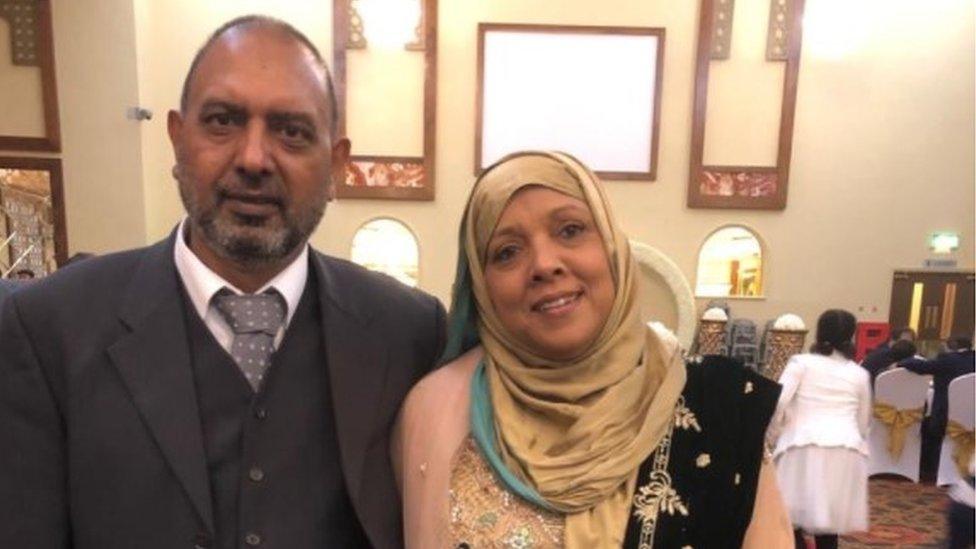Covid-19: Sprinter urges BAME groups to 'have conversation' about the jab
- Published
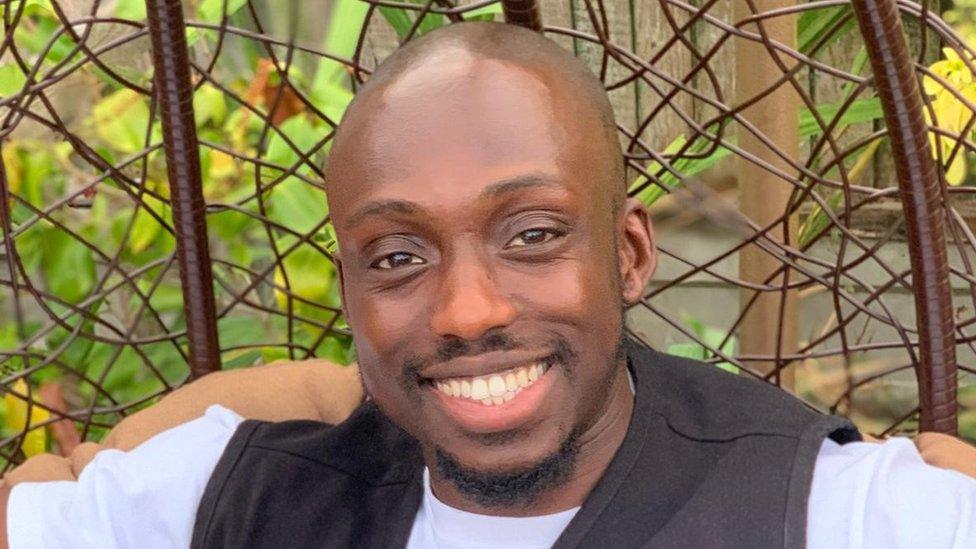
'Let's ask the questions, let's understand what our fears and hesitancies are and then let's deal with those,' said Eugene Amo-Dadzie
A British sprinter has urged black, Asian and minority ethnic (BAME) communities to "have the conversation" about the coronavirus vaccine.
Eugene Amo-Dadzie, from east London, said he had overcome his concerns after discussing them with a family member.
New research shows people from ethnic minorities have been less likely to want to get vaccinated and trust family members' views over the government.
Amo-Dadzie said he had "responsibility" over his career and family.
"Let's have the conversation, let's ask the questions, let's understand what our fears and hesitancies are, and then let's deal with those and move forward," he said.
Amo-Dadzie, 29, is ranked fourth in the UK at 60m and represented England at a European indoor track meet in Austria last year.
Recent official figures, external show people from minority ethnic groups have been less likely to say they would have the Covid-19 vaccine.
Meanwhile, research by the British Red Cross (BRC) showed 81% of BAME communities trusted their families' views, external on the vaccine, compared to 66% for the government and 50% for mainstream media.
Amo-Dadzie said he opened up to his cousin, who works for the BRC, with his concerns about the vaccine, related to how quickly it had been developed and its long-term effects.
It made him realise he had "got a bit of responsibility to think about this on a truly personal level", especially if he wanted to make it to the Olympics or World Championships, he said.
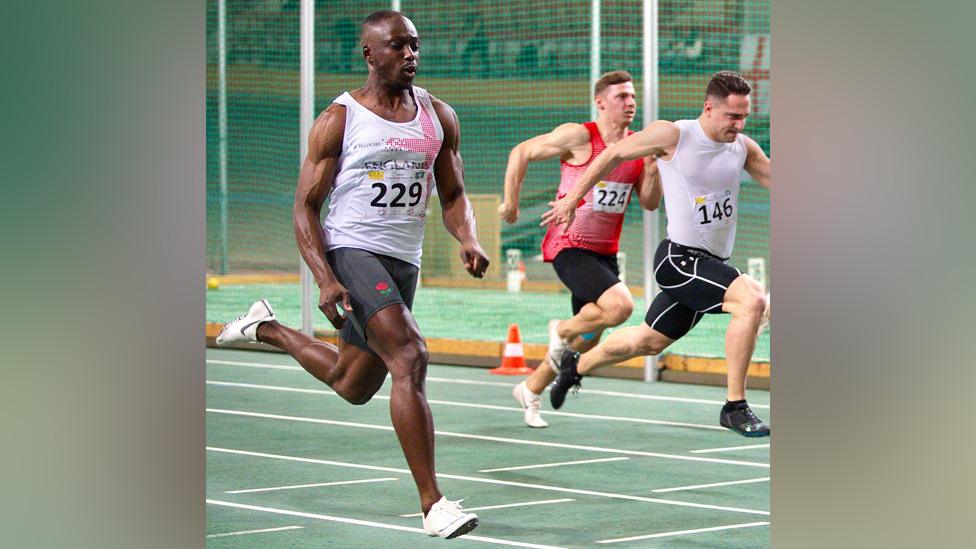
Eugene Amo-Dadzie wants to make future athletics teams for either the Olympics or World Championships
Amo-Dadzie, from Rainham, said: "I started the conversation not caring much for the vaccine. Fast forward to the end of that conversation where actually I said, 'This is something I would consider taking.'"
Prime Minister Boris Johnson said the government would offer a first dose of coronavirus vaccine to all adults by 31 July.
Amo-Dadzie said he caught Covid-19 in December but "for the most part I was OK".
He said his conversation with his cousin made him think about those around him, including his wife and mother, and what impact it could have on his athletics career - that started in 2018 - if he were to get the virus again.
Amo-Dadzie said there were a number of factors that he thought made people from his black West African culture reluctant to have the vaccine.
They would "sooner think about what we are doing in terms of exercise, diet" before medication, he said.
He said the government also had a "strained" relationship with BAME communities.
"When that same government is promoting a vaccine it's not always necessarily an issue with the vaccine itself," he said.
"I think one of the solutions is the government taking it to some more local organisations who have good relationships within the communities that they operate."
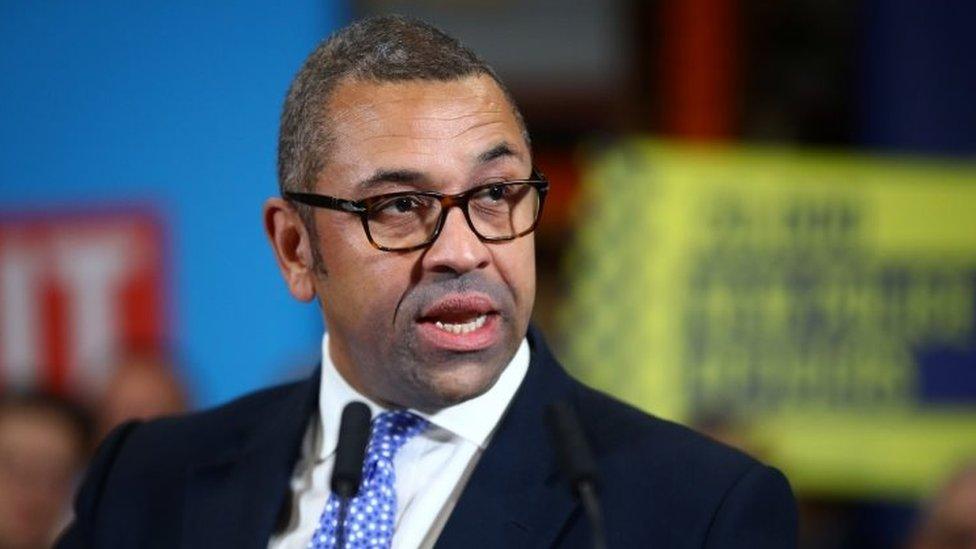
Conservative MP James Cleverly said "having local, trusted, intimate, family community voices is absolutely key"
James Cleverly, the Conservative MP for Braintree, Essex, said Amo-Dadzie had "absolutely hit every single nail on the head".
"We've got a lot of work to do quickly with regards to the vaccine, and the point Eugene made about having local, trusted, intimate, family community voices is absolutely key."
He said the government had set up a £23m programme to reach out to BAME communities to "build that network of local trusted voices".

Find BBC News: East of England on Facebook, external, Instagram, external and Twitter, external. If you have a story suggestion email eastofenglandnews@bbc.co.uk, external
- Published25 February 2021
- Published11 February 2021
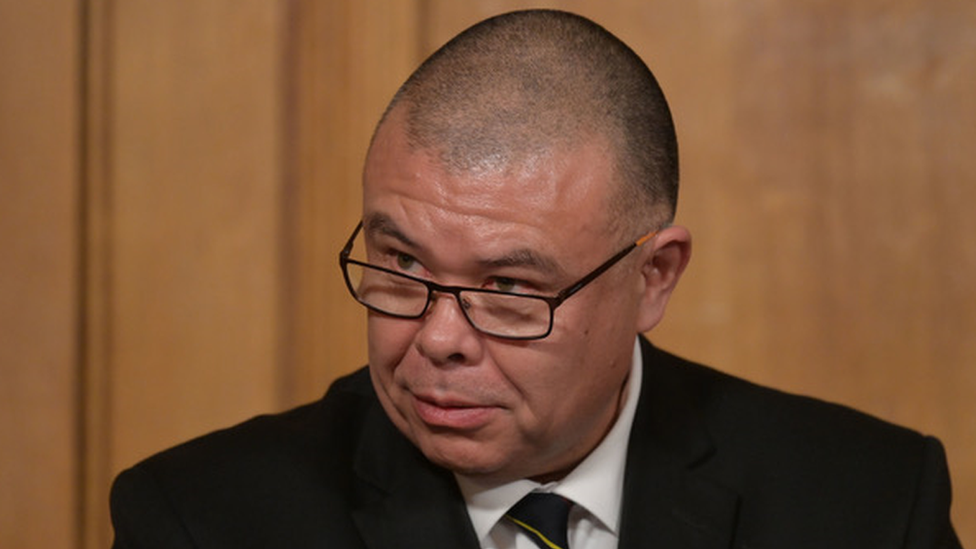
- Published8 February 2021
